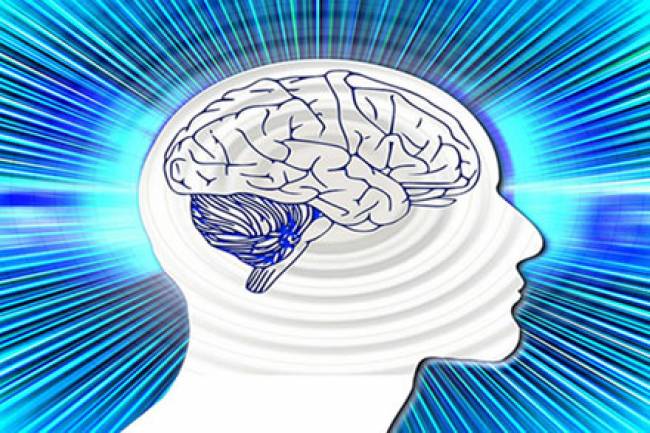Study Smarter, Not Harder: Supplements for University Students

University life is an exciting adventure filled with new experiences, challenges, and opportunities for growth. However, it can also be demanding, with tight schedules, late-night study sessions, and the constant pressure to perform well academically.
In this high-stress environment, maintaining mental clarity, focus, and energy is crucial. Whilst a healthy, balanced diet and regular exercise is essential for optimal brain health, the right supplements may help to provide your brain and body with additional nutritional support to thrive during these formative years.
In this guide, we’ll explore the top five supplements that may help students enhance memory, improve focus, and boost overall cognitive function. Whether you're pulling an all-nighter or preparing for exams, these natural brain boosters and energy lifts could be your key to success.
1. Magnesium
Magnesium is an essential mineral that plays a critical role in over 300 enzymatic reactions in the body, including those involved in brain function. For students, magnesium is particularly important due to its ability to reduce tiredness and fatigue, while helping to manage stress and promote relaxation, making it easier to focus on studying.
- Cognitive Function: Magnesium is vital for regulating neurotransmitters, the brain’s chemical messengers that are essential for memory and learning. A deficiency in magnesium can impair cognitive function, leading to difficulties in concentration and memory, often referred to as brain fog.
- Stress and Anxiety: University life can be demanding, and chronic stress can take a toll on your mental health. Magnesium plays a crucial role in regulating your body’s stress response by influencing the release of cortisol, the stress hormone. By keeping cortisol levels in check, magnesium helps lower stress and anxiety, which can lead to better focus and mental clarity during your studies.
- Sleep Quality: Adequate sleep is essential for memory consolidation and overall brain health. Magnesium supports sleep by regulating melatonin, the hormone responsible for controlling your sleep-wake cycle. By promoting better sleep quality, magnesium ensures that you wake up refreshed and ready to tackle the day’s academic challenges.
Recommended Intake: Adults typically require 300-400 mg of magnesium daily. You can find magnesium in foods like leafy greens, nuts, seeds, and whole grains, or consider a high-quality supplement to meet your daily needs.
2. Vitamin B Complex
Vitamin B Complex is a group of eight essential vitamins that play a crucial role in energy production, brain function, and the synthesis of neurotransmitters. For students, these vitamins are indispensable for maintaining energy levels, reducing mental fatigue, and enhancing cognitive performance.
- Energy Levels: B vitamins, particularly B6, B12, and folate, are vital for converting food into energy. They help reduce tiredness and fatigue, allowing you to stay alert and focused during long study sessions.
- Brain Function: B vitamins support the production of neurotransmitters like serotonin, dopamine, and GABA, which regulate mood, memory, and concentration. This makes them some of the best vitamins for focus and concentration.
- Mental Clarity: By improving oxygen flow to the brain, B vitamins can help clear brain fog and enhance mental clarity, making it easier to absorb and retain information.
Recommended Intake: Each B vitamin has a specific recommended daily intake, so a balanced diet rich in whole grains, eggs, meat, and dairy products can help. For added assurance, a high-quality Vitamin B Complex supplement can ensure you meet your daily requirements in one easy tablet.
3. Lion’s Mane
Lion’s Mane, a functional mushroom that has been used for centuries in traditional medicines, has gained recent popularity as a potential cognitive support supplement. Known for its neuroprotective properties, early studies suggest that Lion’s Mane may help to improve memory, focus, and mental clarity, making it a popular addition to any student’s supplement regimen. However, research in this area is still in its infancy, so studies into its beneficial properties are still ongoing.
- Cognitive Function: This mushroom contains compounds that may stimulate the production of nerve growth factor (NGF), a protein essential for the growth and maintenance of neurons, the cells responsible for transmitting information in the brain. By boosting NGF levels, Lion’s Mane may help support neuroplasticity, which is the brain’s ability to adapt and reorganize itself. Research published in Frontiers in Aging Neuroscience suggests that Lion’s Mane could enhance memory and focus, making it easier to retain and process information, which is especially beneficial during studying and exams.
- Anxiety and Mood: University life can be stressful, and managing anxiety is crucial for maintaining mental well-being. Lion’s Mane has been shown to have potential anxiolytic (anxiety-reducing) effects. A study in Biomedical Research found that Lion’s Mane may help reduce symptoms of anxiety and depression by supporting overall brain health and reducing inflammation. By promoting a balanced mood and helping to manage stress, Lion’s Mane can contribute to a calmer, more focused state of mind.
- Mental Clarity: The mushroom’s bioactive compounds may help improve cognitive performance by promoting healthy brain cell function and reducing oxidative stress. This means that Lion’s Mane could help you stay sharp and alert, making it easier to concentrate on your studies and tackle complex tasks
Recommended Intake: Lion’s Mane is typically consumed in doses ranging from 500 to 1000 mg per day, depending on the extract's potency. It can be taken as a capsule, powder, or even as a tea.
4. Ashwagandha
Ashwagandha is an adaptogenic herb that has been used in Ayurvedic medicine for centuries to combat stress and enhance mental and physical performance. For students, Ashwagandha offers a natural way to help manage stress, improve concentration, and maintain a balanced mood.
- Reduces Stress and Anxiety: University life often brings significant stress, which can affect both mental and physical health. Ashwagandha is an adaptogen, which helps regulate the body’s stress response by balancing cortisol, the primary stress hormone. Research published in the Indian Journal of Psychological Medicine demonstrates that ashwagandha can effectively reduce symptoms of stress and anxiety. By managing cortisol levels, ashwagandha helps you maintain a calmer and more focused state, essential for academic success and overall well-being.
- Boosts Energy Levels: Persistent fatigue from demanding study schedules can impact your performance. Ashwagandha may assist in enhancing energy levels by improving your body’s resilience to stress. A study in Journal of Clinical Psychology highlights that ashwagandha supplementation may help increase stamina and reduce fatigue, helping you stay energised and productive throughout your academic activities.
- Enhances Cognitive Function: In addition to stress relief, studies suggest that ashwagandha can bolster cognitive performance, which is particularly beneficial during periods of intense study. The herb contains bioactive compounds that contribute to brain health by promoting the production of key neurotransmitters involved in memory and learning. This support could potentially improve concentration and mental clarity, making it easier to absorb and retain information.
- Improves Mood: Maintaining a stable mood is crucial for both academic performance and personal well-being. Ashwagandha has been shown to have mood-stabilising effects and may help alleviate symptoms of anxiety and depression. By fostering emotional balance, ashwagandha may help to support a more positive outlook and resilience, which is invaluable during stressful academic periods.
Recommended Intake: The typical dosage for Ashwagandha ranges from 300 to 600 mg per day. Look for supplements that contain a standardised extract to ensure potency and effectiveness.
5. Omega-3 DHA
Omega-3 fatty acids, particularly DHA (docosahexaenoic acid), are crucial for brain health. DHA is a primary structural component of the brain, and adequate levels are essential for cognitive function, memory, and focus. For students, supplementing with Omega-3 DHA can provide significant cognitive support.
- Supports Brain Function: DHA (Docosahexaenoic Acid) is a key omega-3 fatty acid crucial for brain health. It helps maintain the flexibility of cell membranes in your brain, which is essential for effective communication between brain cells. This enhanced communication boosts cognitive functions like memory and learning, making it easier to absorb and recall information. In simpler terms, DHA supports your brain’s ability to work efficiently, which is particularly helpful during intense study periods.
- Reduces Inflammation: High stress can lead to increased inflammation, which negatively impacts brain function and can lead to feelings of brain fog. DHA has anti-inflammatory properties that help protect the brain from this kind of stress-induced damage. By reducing inflammation, DHA helps keep your brain functioning smoothly, improving mental clarity and focus. Research shows that DHA can mitigate the effects of oxidative stress, making it a valuable nutrient for maintaining sharp cognitive performance during stressful times.
- Improves Mood: DHA also plays a role in regulating mood. It contributes to the production of key brain chemicals, like serotonin and dopamine, which are involved in mood regulation. Adequate levels of DHA have been linked to lower symptoms of depression and anxiety. So, if you're feeling overwhelmed or down during your studies, DHA might help improve your mood and support emotional well-being.
Recommended Intake: Experts recommend a daily intake of at least 250-500 mg of combined EPA and DHA for adults. Fatty fish, such as salmon and mackerel, are excellent sources of DHA, but a high-quality fish oil supplement can also help you meet your needs.
Conclusion
Balancing academic demands with a healthy lifestyle can be challenging, but the right supplements can make all the difference. Magnesium, Vitamin B Complex, Lion’s Mane, Ashwagandha, and Omega-3 DHA are all potent, nutritional tools that may help enhance your cognitive function, reduce stress, and keep you energised throughout your university years.
When choosing supplements, it’s essential to focus on quality and efficacy. Look for products that are backed by scientific research and free from unnecessary additives. Remember, supplements work best when combined with a balanced diet, regular exercise, and adequate sleep.
Start building your university survival kit today with these top supplements and give your brain the support it needs to excel. Whether you're looking to improve your memory, enhance focus, or simply maintain mental clarity, these natural brain boosters can help you achieve your academic goals and more.
Disclaimer: Always consult with a healthcare professional before starting any new supplement regimen, especially if you have any pre-existing health conditions or are taking other medications. A balanced and healthy diet combined with regular exercise is always recommended first to improve health and wellbeing. The information provided in this article is for educational purposes only and is not intended to diagnose, treat, cure, or prevent any disease.
References:
- Barbagallo, M., & Dominguez, L. J. (2010). Magnesium and aging. Current Pharmaceutical Design, 16(7), 832-839.
- Tarleton, E. K., & Littenberg, B. (2015). Magnesium intake and depression in adults. Journal of the American Board of Family Medicine, 28(2), 249-256.
- Rondanelli, M., Opizzi, A., Monteferrario, F., Antoniello, N., Manni, R., & Klersy, C. (2011). The effect of melatonin, magnesium, and zinc on primary insomnia in long-term care facility residents in Italy: A double-blind, placebo-controlled clinical trial. Journal of the American Geriatrics Society, 59(1), 82-90.
- Kennedy, D. O. (2016). B vitamins and the brain: Mechanisms, dose and efficacy—A review. Nutrients, 8(2), 68.
- Young, L. M., & Benton, D. (2017). The effect of using a vitamin B-complex supplement on mood and performance in healthy males. Human Psychopharmacology: Clinical and Experimental, 27(1), 22-27.
- Mori, K., Obara, Y., Moriya, T., Inatomi, S., & Nakahata, N. (2009). Effects of Hericium erinaceus on amyloid β(25-35) peptide-induced learning and memory deficits in mice. Biomedical Research, 30(5), 317-325.
- Nagano, M., Shimizu, K., Kondo, R., & Hayashi, C. (2010). Reduction of depression and anxiety by 4 weeks Hericium erinaceus intake. Phytotherapy Research, 24(8), 1704-1711.
- Chandrasekhar, K., Kapoor, J., & Anishetty, S. (2012). A prospective, randomized double-blind, placebo-controlled study of safety and efficacy of a high-concentration full-spectrum extract of Ashwagandha root in reducing stress and anxiety in adults. Indian Journal of Psychological Medicine, 34(3), 255-262.
- Choudhary, D., Bhattacharyya, S., & Bose, S. (2017). Efficacy and safety of Ashwagandha (Withania somnifera) root extract in improving memory and cognitive functions. Journal of Dietary Supplements, 14(6), 599-612.
- Yurko-Mauro, K., McCarthy, D., Rom, D., Nelson, E. B., Ryan, A. S., Blackwell, A., Salem, N. Jr., & Stedman, M. (2010). Beneficial effects of docosahexaenoic acid on cognition in age-related cognitive decline. Alzheimer’s & Dementia: The Journal of the Alzheimer’s Association, 6(6), 456-464.
- Appleton, K. M., Rogers, P. J., & Ness, A. R. (2010). Updated systematic review and meta-analysis of the effects of n−3 long-chain polyunsaturated fatty acids on depressed mood. American Journal of Clinical Nutrition, 91(3), 757-770.

 Sam
Sam 









































